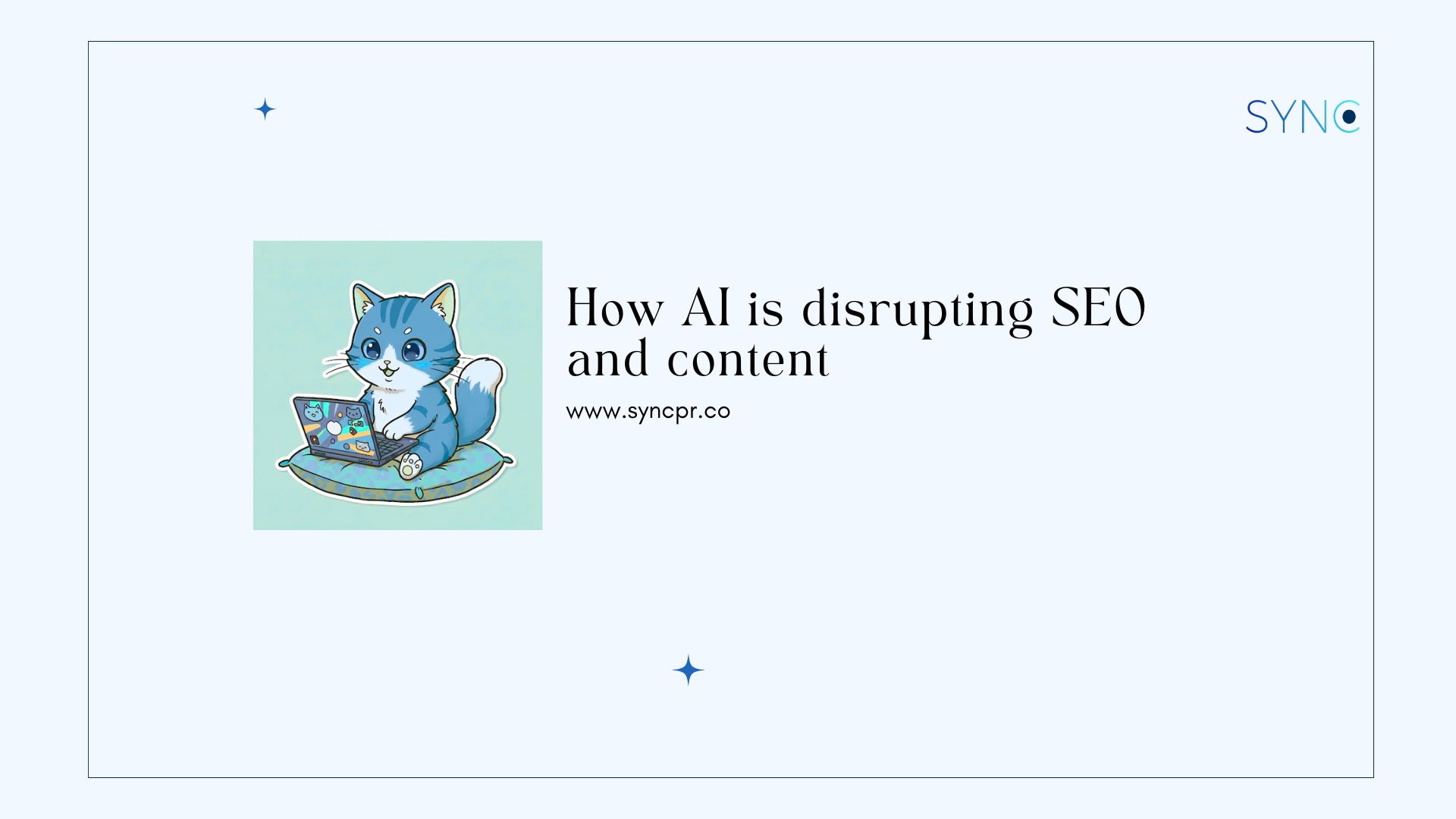When OpenAI released their image creation model, DALL·E 3 in 2023 and integrated it into the ChatGPT Plus, which was only available for their Pro subscribers, people were having fun with it (and still are), and not worrying about what would be the general consensus on AI today — disrupting industries.
From the automation process to creating new capabilities in sectors like manufacturing to healthcare, AI can do it all. In a more specific subject, we’re going to take a look at how AI is disrupting SEO (Search Engine Optimisation).
SEO can be tricky at times, but one good thing that AI does is that it turns what was a tedious task into something more conversational. With AI, the overall understanding of certain subjects becomes better, which will allow for more relevant results for the users. Brands should be able to maximise their SEO strategy — our content team has developed a basic beginner’s guide to SEO here. It’s a good thing now with AI, everyone can put this into practice and simplify the process.
SEO then vs now
The question is: do the old rules still apply in the AI world?
AI continuously learn from new data and relies on information that is published online, which then ensures SEO is up-to-date and effective. One of the features that emerges from AI is its predictive analytics and automatic content generation, which help simplify the process, saving time and ensuring accuracy.
It felt like just yesterday that we used to do backlinks and add keywords to our web pages and try to find a loophole with how we could include the backlinks so it would show up in the algorithm. That’s not the case now! Social media content has now become more about what it can offer to users based on specific keywords they use. Hashtags don’t work that much — AI is smarter than that. To put this into perspective, let’s look at the Instagram algorithm.
The explore page and the feed timeline usually reflect what we have searched for, clicked, and time spent interacting with. The whole point of it is to give users an experience that is tailored to their needs. What shows up on your Instagram Reels or Stories recommendations will be different from your friends. The main component is that it uses a page ranking system that will determine which content will pop up on your timeline.
AI-powered SEO tools that we should look into
Variations of SEO tools are in the market — old and new ones. The existing tools are upgrading their software and technology so they fit with the current landscape. New ones also emerged as AI has become more important in recent years. We have always used AI, but it was never on the scale of the next five years; some employees’ jobs would be on the chopping block sooner than others.
Nevertheless, current roles are benefiting from AI more than ever, especially SEO strategists and content marketing planners.
- ChatGPT by OpenAI
ChatGPT, powered by OpenAI, is perhaps the most used AI tool in the market now, with the recent Studio Ghibli generative AI image spreading around social media. The exposure to this app is huge, and the result varies from generic to specific answers depending on the prompts given.
For people who wish to open a blog, and create quick social media content, and product descriptions — ChatGPT’s ability to generate quick and craft compelling content makes it a valuable addition to any SEO and content planning kit.
- Ahrefs
Ahrefs is known for its all-in-one SEO tool powered by its AI enhancements. This tool is suitable for content marketing planning and monitoring. Its features, Content Explorer and Site Audit,` both provide insights and technical SEO issues by using machine learning. A recurring issue for brands starting to maximise SEO strategy, Ahrefs helps strengthen digital presence so it’s relevant to the campaign execution through data-driven improvements.
- SEMrush
SEMrush on the other hand, offers a comprehensive suite of digital marketing and SEO tools, also powered by AI. For position tracking and competitive analysis, SEMrush is a great tool for content marketing planners and SEO strategists to monitor their brand’s ranking in the market as well as to predict any trends or changes based on their competitors closely.
In terms of SEO, it heavily relies on AI for suggestions and audits individual pages for any improvements. Of course, it covers things like keyword usage, readability, meta tags etc.
Moving forward: AI is disrupting SEO forever
What differentiates then and now is how we actually make full use of what has been laid out to us. One thing for sure is that we will never see a world where AI is banned or terminated once and for all. Like it or not, this is the future. AI is the future. As over 44 per cent of AI has taken over the SEO tasks, proving its significance in today’s digital marketing, which leaves us to decide whether to lean in or move away from it. In this case, it’s easier to use AI-powered SEO tools as a companion in planning content.
We are seeing this in how we run certain campaigns, such as the work we do for chiropractor clinics and other service-based industries. The use of AI tools in developing content has created a competitive field, where younger clinics or less established businesses are able to catch up quite quickly.
We look ahead to what AI has in store for us in the next few years, as it has changed what SEO used to be and what it has become significantly now. For now, the question we should be asking is: do we have the right resources to do so? If we were to assess current strategies and plan new ones, where would one start?
If you’re looking to maximise SEO strategy and need help with content planning, drop us a line at hello(a)syncpr.co to start your brand journey!

